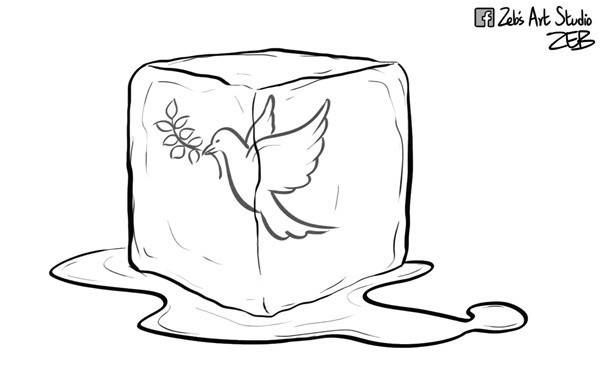
‘E-peace’
Sir,
India is in the midst of a revolution, which is touching the lives of more and more citizens everyday. This revolution comes to us courtesy the wave of Internet shopping that is growing at an accelerated pace. What makes it a revolution is the reach of e-stores, which do not have to face geographical constraints. Even denizens from remote villages are ordering their choicest brands and fancy products from the Internet storefront.
While rich collegians from metro cities are flaunting stylish accessories shopped on the go from US and European portals, there are people like Laxman Ravat, who hails from a lesser-known hamlet called Salambar in western India. Laxman, who works as a domestic help, has a small feeling of joy somewhere inside. The joy is anticipation of a pack of seven saris (Indian traditional wear for women) that he ordered online with a friend’s help for the women of his entire extended family at a 70% discount, cash-on-delivery.
If there is a possible way to brighten the affinity between India and Pakistan, it may be through affirmative acquaintance between the youths of both countries. Actually, there are a lot of commonalities between these Internet generations, like their sociability for gadgets, like for technology and inclination to being more stylish and fashionable. There may be hundreds of thousands of merchandise in both countries that are beyond the reach of those across the border, but may sell like hot cakes if offered to the audience on the other side. This may include clothes, jewelry, artifacts and food products, among several others.
What if e-retailers from both countries start promoting their online portals across the dividing line? First of all, there will be the opportunity of a huge brand new market for retailers, many of whom are currently busy exercising every bit of effort to find and bring in new habitué to their e-outlets. Consumers can now shop a whole new set of products that were never before available. But, most of all, there is a good probability that it will build an entire new relationship of trust and dependency between traders and clients located in two different lands. If governments and trade organisations offer an environment and infrastructure for necessary checks, the concept that looks like a dream may become a reality. Also, the borders that would be crossed by deliveries of choicest goods everyday would have fewer chances of going to war.
Nischal Sanghavi,
Gujarat.
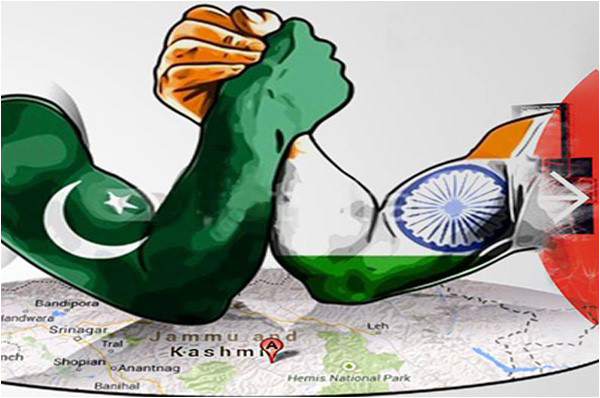
Kashmir
Sir,
Here is a piece of history by Dr Nyla Ali Khan, a Kashmiri scholar at the Oklahoma University, that raises pertinent questions about the willingness of both Pakistan and India to resolve the Kashmir dispute, amicably, bilaterally under the UN Resolutions. The policymakers need to evaluate the available options and understand the situation keeping in view the Kashmiri people’s aspirations, fears and reservations.
In the interests of expediency, the UNCIP appointed a single mediator, Sir Owen Dixon, the United Nations representative for India and Pakistan, Australian jurist and wartime ambassador to the United States, to efficiently resolve the Kashmir conflict. Dixon noted, in 1950, that the Kashmir issue was so tumultuous because Kashmir was not a holistic geographic, economic, or demographic entity, but, on the contrary, an aggregate of diverse territories brought under the rule of one maharaja. In a further attempt to resolve the conflict, Sir Owen Dixon propounded the trifurcation of the state along communal or regional lines, or facilitating the secession of parts of the Jhelum Valley to Pakistan.
Despite the bombastic statements of the governments of both India and Pakistan, however, the Indian government has all along perceived the inclusion of Pakistani-administered J&K and the Northern Areas into India as unfeasible. Likewise, the government of Pakistan has all along either implicitly or explicitly acknowledged the impracticality of including the predominantly Buddhist Ladakh and predominantly Hindu Jammu as part of Pakistan. The coveted area that continues to generate irreconcilable differences between the two governments is the Valley of Kashmir.
There seemed to be an inexplicable reluctance on both sides, India and Pakistan, to solve the Kashmir dispute diplomatically and amicably. Sir Dixon’s concluding recommendation was a bilateral resolution of the dispute with India and Pakistan as the responsible parties, without taking into account the ability of the representatives of the people of J&K to be the architects of their political future. Is this the anachronistic policy being toed by the governments of India and Pakistan in 2015? What Pakistan needs to do is to exploit effectively and forcefully the rebutting of the Indian claim of Occupied Kashmir being part of India, by the Jammu and Kashmir High Court that has recently ruled that the State has never been part of India. “Article 370 of Indian constitution that deals with the status of Jammu and Kashmir is beyond abrogation, repeal or even amendment,” the high court said in its ruling the other day. “Article 35A gives ‘protection’ to existing laws in force in the State. Article 370 though titled as ‘Temporary Provision’ and included in Para XXI titled ‘Temporary, Transitional and Special Provisions’ has assumed place of permanence in the Constitution,” a division bench of justice Hasnain Masoodi and Janak Raj Kotwal ruled in a 60-page judgement. “It is beyond amendment, repeal or abrogation, in as much as Constituent Assembly of the State before its dissolution did not recommend its Amendment or repeal,” the bench ruled.
The decision has been highly welcomed by the local parties and political figures representing the major population, Muslims. Peoples Democratic Front (PDF) President and Awami Muthida Mahaz (AMM) leader Hakim Mohammad Yasin welcomed the landmark judgment. They said, “Now the challenge for Jammu and Kashmir government is to further strengthen Article 370. According to the ruling, the Article 370 is a permanent provision of the Constitution and it cannot be abrogated, repealed or even amended. “It is a welcome decision. There was a demand within and outside the Assembly that Article 370 should be safeguarded and the High Court’s historic decision is a welcome step. But now it a challenge for the J&K government and especially for Mufti sahib how to further strengthen it (Article 370) and restore those previsions of this Article which have been eroded over the years,” Hakim Yasin said in a press statement. “Limited sovereignty or special status stands guaranteed under Article 370 of the Constitution,” he added. Media, both print and electronic, must highlight it and the foreign office as well as the intelligentsia must debate it in order to find out and put pressure on India as well as the world community to take the initiative towards resolution of Kashmir as early as possible. One remembers the words of Chief of Army Staff General Raheel Sharif, who, on the eve of Golden Jubilee of 6 September war of 1965, said in his speech: “Kashmir is the unfinished agenda of the subcontinent’s partition. The people of Indian occupied Kashmir are being subjected to Indian injustice and atrocities for over the last seven decades. Enduring peace in the region is not possible without just resolution of Kashmir, it can be no longer put on the back burner. Therefore, time has come that Kashmir issue should be resolved in line with the aspirations of its people in accordance with UN resolutions.”
Fauzia Sardar Niazi,
Islamabad.
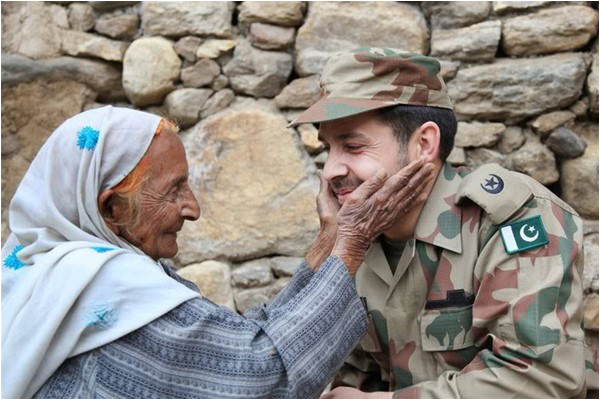
State obligation
Sir,
It is the insatiable greed of a few members of the political, civil and uniformed elite of Pakistan and their conflicts of interest that have driven the country to its present state of impending financial bankruptcy and lawlessness. Most problems we face today are products of abuses of power and greed of corrupt officials, who went from rags to riches, building business empires at the cost of compromising our national security and state sovereignty. General Raheel started the process of reforming the army through accountability and it is hoped that General Bajwa takes it to its logical conclusion.
This country’s obligation should be to work for the welfare of young officers and soldiers of the Pakistan Army like Captain Asfandyar Bokhari, Captain Tasleem Haider, Captain Sana and scores of other civilians, who offered the supreme sacrifice defending this country and not all those who performed duties for which they were paid. Instead of gifting luxurious houses and tax amnesties to those who are already affluent, we owe these benefits only to the families of those who embraced martyrdom, or were permanently disabled while on active duty. We live in a global village where the system of governance and welfare obligations of state are defined and laid by ethics set by our religion and universally adopted by all developed and civilized countries where there is rule of law.
Unfortunately, it was conflict of interest of the khaki elite during the tenure of Musharraf who introduced the “points formula”, awarding plots on every promotion and posting, and introducing an element of greed for real estate. Scams involving few corrupt officers who with a nexus of land mafia deprived citizens of their lifelong savings, and did not spare even beneficiaries of Army Welfare Fund.
A M Tariq,
Malaysia.
Oh, You, Up There
You have it all?
You have the resources to make it happen
You have it all
You have clothes, you have wealth, you have plenty of food
You have it all
You have lands, you have houses, you have cars
You have it all
You have diamonds, you have rubies, you have emeralds
You think you have it all
You have shoes, you have bags – Gucci, Prada, Dior
You think you have it all – but you desire more of it all
You say you are up there – above them all
Born to a certain family of privilege and wealth – everybody else “nobodies”!
But look around you – open your eyes
See “your” “brothers and sisters” and their children – bare, hungry - without it all
Do you care, do you see, do you even feel?
Instead of the “extra” designer clothes or bags buy them basic food or clothes
Oh men and women of wealth, have a heart, have a conscience,
Use the wealth that Rabbee gave you in a better way
The wealth you have does not make you special, what you do with it does
Collect that wealth to build a school, fund a hospital, fund a charity
You may have 30 pairs of clothes and plenty of shoes in your cupboard
but at the end of the day you only wear one pair a day – think!
Remember the simplicity of Umar, the Prophet/s (pbuh/t) and the saints
At one Friday prayer Umar, the Imam, was late as he awaited his one pair to dry
If you utilize the resources God gave you and see it as a responsibility
With plenty of return and as an investment in the hereafter, as God promises
You can re-focus your intentions and actions in relation to your wealth
If you spend to improve this world not just stock up for your lifeless cupboard
If you reach out to humanity sowing seeds of love and peace as sadqa-e-jarya
Then, only then, you can happily turn around and truly say,
“I have it all”!
Amineh Hoti,
Lahore.
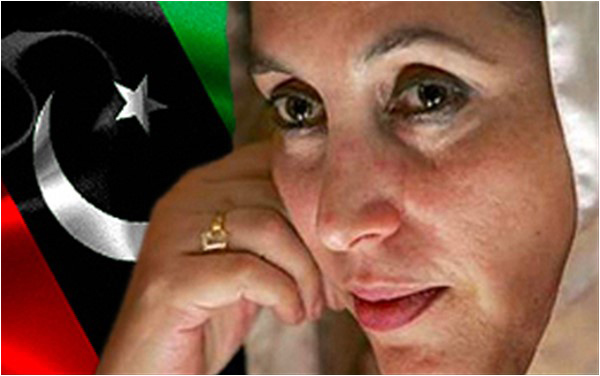
Fate of PPP
Sir,
Reference media reports about the choice of venue and glamour, pomp and show for holding the 50 Years ceremony of launching of the PPP by its founder Zulfiqar Ali Bhutto and his colleagues, all educated men of character, with integrity and devotion. I was among many other friends of my age group who attended the launching of the PPP on a vacant plot behind the residence of Dr Mubashar Hassan, opposite Auriga cinema, and have painfully seen it decline from being a party whose leader ZAB had captured the hearts and minds of young men and women, giving hope to poor farmers and laborers to its present abysmal decline. The choice of venue for its inauguration in 1966 compared to the fort like venue says it all.
ZAB was politically ambitious and had many weaknesses but even his worse critics cannot accuse him of institutionalized corruption, involvement with land and sugar mafia, kickbacks, pilfering state coffers, or compromising state sovereignty and national interest for petty commercial benefits. He chose to live in hearts and minds of people instead of building and buying castles.
Just compare the caliber and choice of ZAB’s cabinet members and the controversies and scams of those appointed by Asif Zardari. It was ZAB’s choice of a man of integrity and commitment like Rafique Saigol and Nur Khan that PIA was resurrected from ruins, and compare it to the choice of cronies with a history of financial impropriety who were appointed by Zardari and under whom the national airline deteriorated to a state of perpetual bankruptcy.
ZAB wanted a place in history and was the pioneer of our nuclear defense strategy, which today offers an effective deterrence against enemy attacks. The PPP survives solely on the legacy of ZAB and his daughter. But this cannot go on endlessly, its edifice is crumbling, unless political leadership decides to follow the legacy of its founder. Bilawal, an educated young man, has to make a choice of following the legacy of either ZAB or Zardari, both of whom had nothing in common insofar as values, politics, ideology and goals are concerned.
Malik Ali,
Lahore.
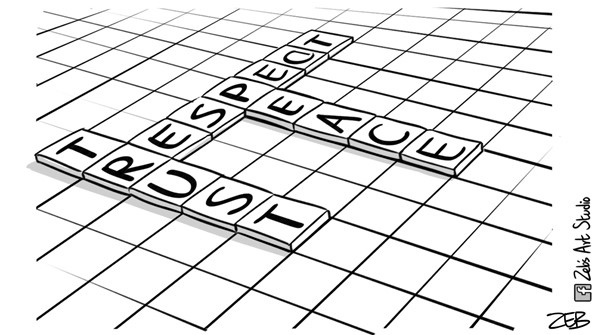
Pak-Afghan peace
Sir,
There have been many ups and downs in the relationship between Pakistan and Afghanistan. Immediately after taking over the reins of Afghanistan, Mohammad Ashraf Ghani made moves that signalled a future of peace and cooperation between the two countries, giving birth to the hope, on both sides, that the rapidly deteriorating relations between the two volatile neighbours are about to move in the right direction. Unfortunately, however, this hope dissipated sooner than expected. The government of President Ashraf Ghani lost no opportunity in blaming Pakistan for conducting terror attacks in Afghanistan. Naturally, Pakistan tersely rejected the allegations of the Afghan government.
Unquestionably, a politically stable and economically strong Afghanistan is in the interest of not only Pakistan, but the entire region. Why would then Pakistan at all support any subversive activity, by any quarter, in Afghanistan that would destabilise the country? It is vital to the interest of both Afghanistan and Pakistan that they bury the hatchet, once and for all, and make genuine endeavours to establish mutual trust and respect among each other. This is one extremely significant element that seems to be conspicuously missing in the existing frosty relationship between the two countries.
Fazal Elahi,
Islamabad.

